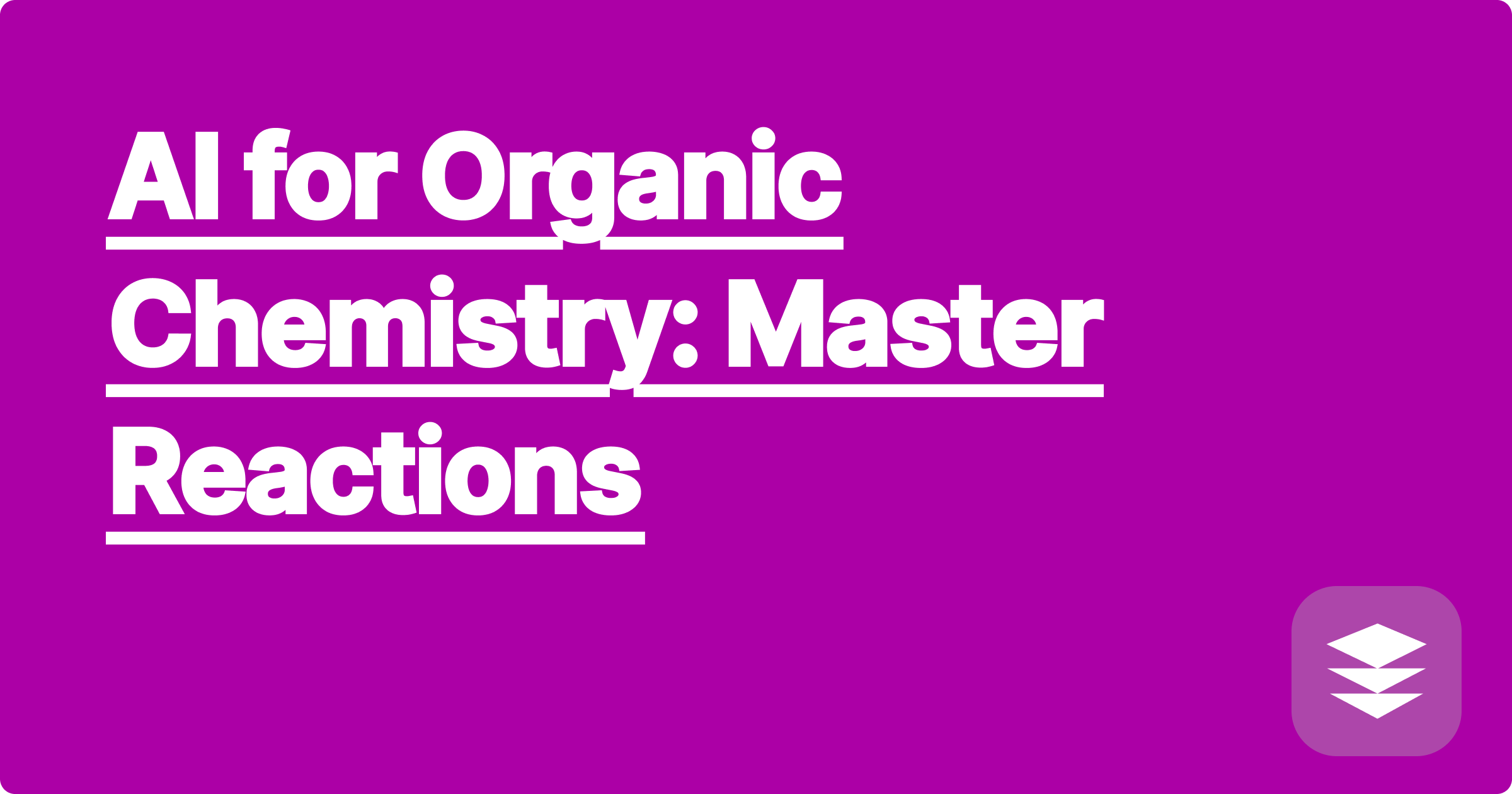
Organic chemistry, the captivating study of carbon-based compounds, often presents a formidable challenge to STEM students. The sheer volume of reactions, intricate mechanisms, and seemingly endless nomenclature can feel overwhelming. Many students struggle to connect the dots, visualize the transformations, and ultimately, master the material. But what if there was a way to personalize the learning process, break down complex concepts into digestible chunks, and even predict reaction outcomes? The answer, increasingly, lies in the power of Artificial Intelligence (AI). This blog post explores how AI can revolutionize the way you approach organic chemistry, transforming it from a daunting obstacle into a fascinating and achievable subject. We’ll delve into specific AI tools, both well-known and niche, and demonstrate how they can be integrated into your study routine to boost comprehension, improve problem-solving skills, and ultimately, conquer those challenging organic chemistry exams.
This isn't just about memorizing reactions; it's about understanding the underlying principles that govern them. AI can be your personalized tutor, guiding you through complex mechanisms, providing practice problems tailored to your weaknesses, and even helping you manage your study time more effectively. Whether you're a first-year student struggling with basic concepts or a seasoned researcher exploring advanced synthetic pathways, AI has something to offer. We'll explore how a Generalized Personal AI (GPAI) can act as your virtual study partner, and we'll introduce you to some lesser-known AI tools that can give you a real edge in your organic chemistry studies.
Organic chemistry is inherently complex. Reactions often involve multiple steps, intricate rearrangements of electrons, and the formation and breaking of chemical bonds. Visualizing these processes can be difficult, and many students struggle to grasp the underlying mechanisms. Traditional learning methods, such as textbooks and lectures, often present information in a linear fashion, making it challenging to see the interconnectedness of different concepts. Furthermore, the sheer volume of information can be overwhelming, leading to inefficient study habits and ultimately, poor exam performance. This complexity is further amplified by the need to understand stereochemistry, regioselectivity, and other factors that influence reaction outcomes. Simply memorizing reactions is rarely sufficient; true mastery requires a deep understanding of the underlying principles.
AI offers a powerful suite of tools to address these challenges. ChatGPT, for example, can be used to generate practice problems, explain reaction mechanisms in a conversational style, and even provide personalized feedback on your answers. Wolfram Alpha can be used to predict reaction products, calculate equilibrium constants, and access a vast database of chemical information. Beyond these well-known tools, several niche AI platforms are emerging that cater specifically to the needs of organic chemistry students. These tools can analyze reaction data, predict reaction pathways, and even suggest optimal synthetic routes. By integrating these AI tools into your study routine, you can transform the way you learn and interact with the material.
Imagine struggling with the Grignard reaction. Instead of passively reading about it in a textbook, you can engage with ChatGPT. Ask it to explain the mechanism step-by-step, prompting it with specific questions about electron flow and intermediate formation. You can then use Wolfram Alpha to explore different Grignard reagents and predict the products they would form with various carbonyl compounds. Finally, you can utilize a specialized organic chemistry AI tool, like Synthia or ChemDraw Cloud, to visualize the 3D structures of the molecules involved and simulate the reaction pathway. This interactive and personalized approach allows you to actively engage with the material, fostering a deeper understanding and improved retention.
Let's say you're trying to synthesize a specific target molecule. You can use an AI-powered retrosynthesis tool to generate potential synthetic routes. The tool will analyze the target molecule and propose a series of reactions that could be used to construct it from readily available starting materials. It can even assess the feasibility of each route, taking into account factors like reaction yields and cost. For example, if your target molecule contains a chiral center, the AI can suggest asymmetric synthesis strategies to achieve the desired enantiomer. This type of AI assistance can significantly accelerate the research process, allowing you to explore a wider range of synthetic possibilities and optimize your experimental design.
To maximize the benefits of AI in your organic chemistry studies, consider incorporating a GPAI into your workflow. A GPAI can act as your personalized study assistant, helping you organize your notes, schedule study sessions, and even track your progress. For example, you can ask your GPAI to create flashcards based on your lecture notes or generate practice quizzes tailored to specific topics. It can also remind you of upcoming deadlines and suggest relevant study materials. Combining these strategies with the targeted use of specialized AI tools can significantly enhance your learning experience and improve your academic performance. Think of your GPAI as your personal AI tutor, always available to answer your questions, provide guidance, and help you stay on track.
Finally, remember that AI is a tool, not a replacement for hard work and dedication. Use it to supplement your learning, not to replace it entirely. Active engagement with the material, combined with consistent practice and a willingness to seek help when needed, remains crucial for success in organic chemistry. By embracing these strategies and leveraging the power of AI, you can transform your approach to learning, unlock your full potential, and achieve your academic goals. Start exploring these AI tools today and discover how they can help you master the fascinating world of organic chemistry.
AI in Chem Eng: Optimize Lab Processes
AI for Calculus: Instant Problem Solving
AI Biology Tutor: Ace Your Exams
AI for Robotics: Design & Simulate
AI for Stats: Analyze Data Easily
AI in Computer Science: Learn to Code
AI for Materials Science: Discover
AI for Linear Algebra: Solve Equations